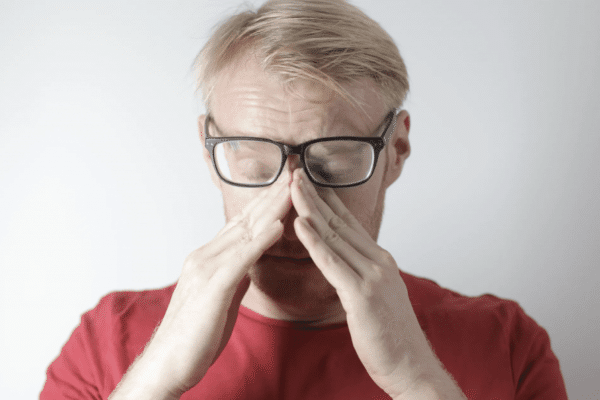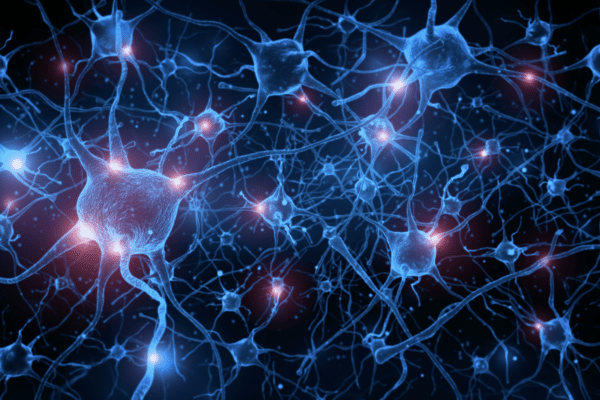How Long Does It Take To Detox From Alcohol? The Timeline That You Should Know

Detox is widely considered the first step in overcoming alcohol addiction. It is a natural process of the body ridding itself of waste products and toxins from excess, long-term alcohol abuse. Medication and counseling typically aid with this process.
At Master Center for Addiction Medicine, one of the most common questions we hear is, “How long does it take to detox from alcohol?”
It can be frustrating to hear how long detox takes varies based on the person. However, the medical community has established a general timeline that can help you know how long treatment can take. Read on to learn more about the alcohol detox process.
How Long Does It Take for Alcohol Detox?
As said before, the alcohol detox process varies based on several factors. After a person’s last drink, alcohol takes days to leave the body. However, the cravings last much longer, and fighting them is a challenging part of the recovery.
There is generally a three-step process that most people go through when detoxing.
The Timeline
- Intake – Includes a comprehensive review of the patient’s medical history to understand the situation entirely.
- Medication – Some patients get prescribed medication that mimics the effects of alcohol to ease withdrawal symptoms.
- Stabilization – The patient works with medical professionals through therapy to balance the mind and body without the use of alcohol.
Detoxification is only the first preparatory step after a person’s last drink. It precedes a more prolonged (sometimes lifelong) treatment program.
The detox process may only take between a week and ten days. After this, the hard part begins. Medical experts recommend full treatment that includes counseling and support groups to prevent relapse.
Alcohol withdrawal is the hardest part of detox to overcome. Alcohol is a depressant, and as such, has a sedating effect on the brain. The brain adjusts its chemicals to account for the continual exposure to it. When the body undergoes alcohol withdrawal, the brain must readjust its chemicals to account for the lack of depressants. This sudden shock to the body’s system results in alcohol withdrawal symptoms, including severe cases such as delirium tremens.
A more in-depth timeline of the detox process and its withdrawal symptoms is below:
1-2 Days (Intake)
Alcohol withdrawal symptoms begin about 1-2 days after a patient’s last drink. For safety, a person should enter an addiction treatment center or facility to go through this process.
During these first two days, medical personnel review a patient’s entire medical history to create a personalized detox plan. A doctor or qualified professional will prescribe and administer medications to combat symptoms.
Anxiety, insomnia, and shaking are among the most common alcohol withdrawal symptoms that occur during this time. High heart rate and blood pressure can also occur, as well as general restlessness and irritability. This time is the “adjusting period.”
3-5 Days (Medication)
Alcohol withdrawal symptoms peak after the 72-hour mark from the last drink. This stage is what many patients consider the worst part of the detox process. A person will experience severe symptoms, which can include the following:
- Anxiety
- Hallucinations
- Tremors
- Nausea/Vomiting
- Insomnia
- Sweating
- High blood pressure
In rare instances, delirium tremens (commonly referred to as DTs) can occur. This condition is when the brain cannot readjust its chemistry during alcohol detox and creates a temporary state of confusion. Symptoms of delirium tremens include unpredictable changes in heart rate and blood pressure.
Delirium tremens occur in the most chronic alcohol abusers. No specific treatment exists other than symptom control. However, the use of benzodiazepines is the most common method to mitigate symptoms and prevent seizures for delirium tremens.
5-7 Days (Transition into Stabilization)
Symptoms taper off within the first week of not consuming alcohol. This point is where most people start feeling better, but this is dangerous.
Some patients feel that they’ve cured themselves because they’ve decided to stop drinking. They mistakenly cease all treatment at this point. Therapy and counseling are vital in this time to ensure that relapse does not occur.
For the most severe cases of alcohol use, prolonged (and maybe lifelong) therapy is necessary to prevent alcohol abuse from reoccurring.
After 7 Days
Symptoms of alcohol withdrawal can and do occur even after direct treatment stops. During Post-acute withdrawal, the brain is slowly regulating itself and getting back to normal functioning. This adjustment can result in symptoms from the imbalances still in the brain.
Symptoms after seven days can take a toll on mental health and lead to:
- Anxiety
- Insomnia
- Mood swings
- Depression
Severe post-acute withdrawal symptoms are most common in those who suddenly stop substance abuse. This risk is why it’s crucial to contact a medical professional for help rather than quit “cold turkey.”
Alcohol cravings can still occur after the first week of alcohol detox, which is why therapy and counseling are essential. Working with a counselor or therapist to identify triggers and control thoughts can help you to prevent and overcome cravings.
Therapy is necessary to prevent relapse after detox is complete. Cognitive-behavioral therapy is a standard tool to use in tandem with medication. More open and generalized groups can build a support network that can help keep the good momentum going.
Other Factors That Affect the Alcohol Detox Process
Other factors can complicate a straightforward answer to the question, “How long does it take to detox from alcohol?”
As mentioned, the detox process varies from person to person. Someone who has had alcoholism for years will likely have a longer detox process than someone who has had an alcohol dependency for a few months.
Several factors affect the duration of the detox process, including:
- How much the person drinks regularly. A person who drinks eight drinks a day will have a longer detox process than someone who drinks four.
- How often the person drinks. A person who drinks every day will have a longer detox process than someone who drinks every two or three days.
- Age. Younger people generally have a better ability to “bounce back” from the symptoms of alcohol withdrawal
- Weight. Heavier people need more alcohol to feel its effects, which means they’re consuming more.
- Sex. Males are statistically more prone to alcohol and other substance abuse.
- Genetics. Some people have a genetic predisposition to an alcohol use disorder. Some genes also affect how people respond to alcohol withdrawal treatment and medication.
- Other substance abuse. The more drugs a person uses, the more difficult it is to detox. Alcohol interacts with other substances and makes withdrawal symptoms more severe, making the detox process longer.
- Mental health. Mental health disorders, such as depression or mood swings, can affect the detox process and timeline. Comprehensive recovery plans are the safest and most effective way to treat both problems.
- Physical health. Alcohol affects the body in more ways than one. It can damage the organs and the brain. The more damaged the body is, the longer detox can take.
Something that not many people realize is a factor that affects the alcohol detox process is the method of approach. Quitting abruptly (“cold turkey”) is the fastest method of detox. However, it’s the most dangerous. More severe symptoms can occur without the advice and constant monitoring from a medical professional. A slower, monitored approach will take longer, but it will ease the person into and out of the withdrawal symptoms rather than throw them into it.
The medications prescribed can also affect how long the detox process can take. Benzodiazepines (such as Librium, Valium, and Ativan) are the most common drugs used for alcohol treatment. These medications reduce the symptoms of alcohol withdrawal. Some people will respond better to one kind of medicine rather than another, so sometimes it is a trial-and-error situation with medication
It’s important to note that Benzodiazepines are an addictive substance. A person should only take them in medically appropriate amounts and when prescribed by a medical professional. Substance abuse not only can prolong the detox and recovery process, but it can also result in legal action.
Why You Should Get a Professional’s Help
Alcohol addiction is a highly treatable disease, and recovery is 100% attainable. However, it can be nearly impossible to do it alone.
Alcohol withdrawal is also dangerous (and potentially even fatal) to do alone. It is best to have the symptoms of alcohol detox monitored by a medical professional. Experiencing seizures, heart arrhythmia, hallucinations, and even aspiration pneumonia is rare but can happen. This risk is not something you should attempt alone.
Getting a professional’s help ensures that you’re getting the best treatment by someone who has studied addiction to alcohol and knows how to work with you to prevent it from getting worse. They can prescribe medication to ease the detox process and recommend counselors to talk to you through the symptoms of withdrawal. They are also available to help if anything goes wrong or if any of the more serious symptoms occur.
A professional can also help you get valuable local resources to help you stay alcohol-free once you leave the rehab facility or hospital. Relapse doesn’t mean failure, but getting back on track and resuming treatment is essential.
Conclusion
Entering detox can be life-saving for someone with alcohol addiction. Alcohol detox is a process that can take some time, especially in the case of relapse, but alcohol treatment programs improve the chances of staying off alcohol for good. Ridding the body of alcohol during detox is just the first step but a vital one. It can clear the mind and heal the body so that you can pursue full treatment and go on to live a happy and healthy life. If you want to stop drinking, know that you can with help from a treatment center. For more information about alcohol detox and addiction treatment options, contact Master Center for Addiction Medicine today.
Resources
Harvard Health Publishing: Alcohol Withdrawal What Is It
NIAAA: Genetics of Alcohol Use Disorder
NCBI: Delirium Tremens
NCBI, NLM, NIH: Cognitive-Behavioral Therapy for Substance Use Disorders


